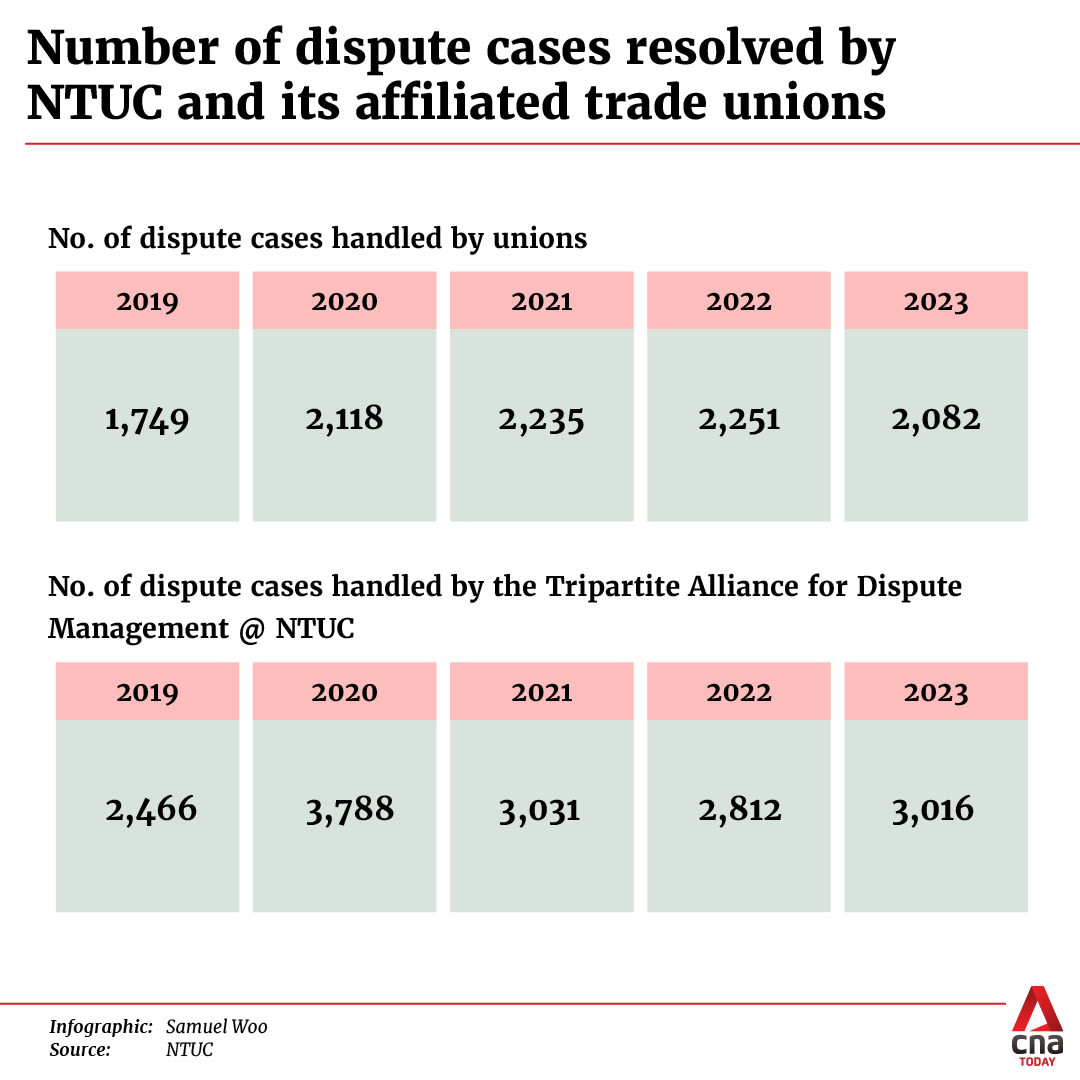Do Singapore unions have a PR problem?
Unionists speak of late night phone calls with troubled workers and tense negotiations with the management of companies as part and parcel of the work they do. But outside the unions, not many workers - especially among the younger ones - are aware of such efforts.

Dr Luqman Akasyah and his wife, Dr Rabia'tul A'dawiah, were volunteers for Mr Tharman Shanmugaratnam’s presidential election campaign in 2023. (Photo: CNA/Ooi Boon Keong)
From forming a union in his oil and gas company as a young worker in his 20s to holding top positions in the National Trades Union Congress (NTUC), Mr K Karthikeyan has spent about 40 years fighting for workers’ rights.
Yet, the emeritus general secretary at United Workers of Petroleum Industry said that many people are still unclear about the work he and the labour union do.
“When I tell people I work with NTUC, they will start talking to me about the prices of this and that item. I have to keep telling them I do not work at FairPrice,” said the 65-year-old former Nominated Member of Parliament, referring to the supermarket chain that is under the NTUC umbrella.
He attributes the mix-up to the “excellent” marketing work by NTUC FairPrice and the fact that the co-operative touches the lives of the wider public more directly and regularly than the labour relations part of NTUC.



But it points to an issue acknowledged by Mr Karthikeyan and other unionists who spoke to CNA TODAY: Many members of the public do not know what the labour movement does or can do for workers, with some even questioning its effectiveness.
Mr Andy Ang, 39, who has been with the labour movement for 10 years, said he has heard some critics, especially those from the younger generation, dismiss NTUC as “no use”.
“But actually that is not the truth. If you look at COVID-19 for instance, it has come out in the papers how we dealt with certain companies (to help workers),” said the assistant executive secretary at the Supply Chain Employees' Union, which represents the interests of logistics and supply chain workers.
NTUC assistant director-general and former MP Zainal Sapari agreed: “Sometimes I feel that the work of union leaders is underappreciated.”
The role of the labour movement here has been thrust into the spotlight again in the wake of a spate of high-profile layoffs this year.

E-commerce company Lazada conducted a retrenchment exercise affecting at least 100 workers in January, without informing NTUC. Consumer appliances firm Dyson axed an undisclosed number of workers in October, giving NTUC only one day's notice.
A parliamentary debate in September also put a spotlight on the close relationship between NTUC and the ruling People’s Action Party (PAP), which is commonly described as "symbiotic", or mutually beneficial.
Unionists that CNA TODAY spoke to acknowledged the image issue that NTUC has and the scepticism shared among some members of the public towards the labour movement.
However, these unionists said they would be circumspect about trying to counter this image problem by flaunting the largely unheralded efforts that take place behind closed doors. This quiet work involves protecting workers and dealing with employers when disputes arise.
These unionists worry that publicly airing such cases, even without naming parties to work around confidentiality issues, might engender distrust on the part of companies and unintentionally paint a negative picture of industrial relations in Singapore in the eyes of prospective investors.
Mr Tan is also senior minister of state in the Prime Minister’s Office.

A veteran unionist in the public sector in his 60s said it is common for union leaders to stay up until midnight listening to their members’ grievances.




